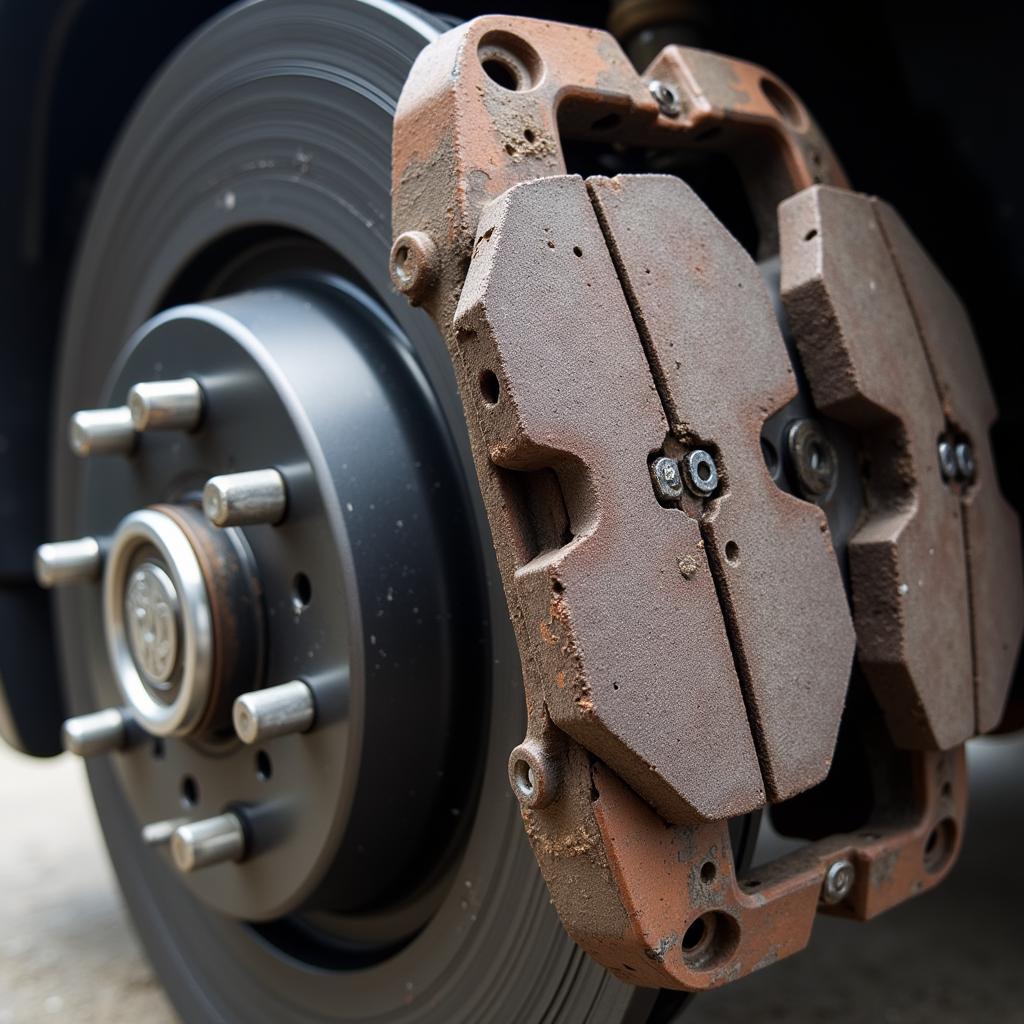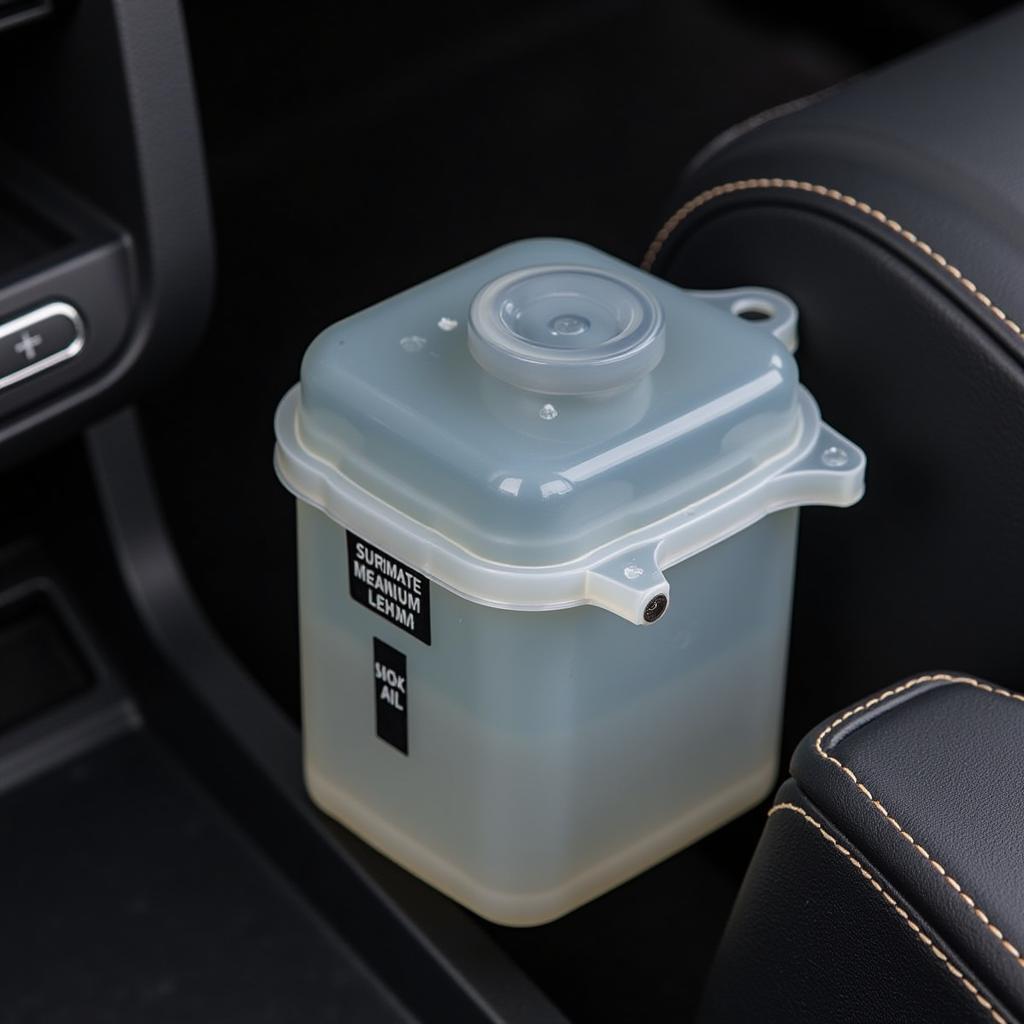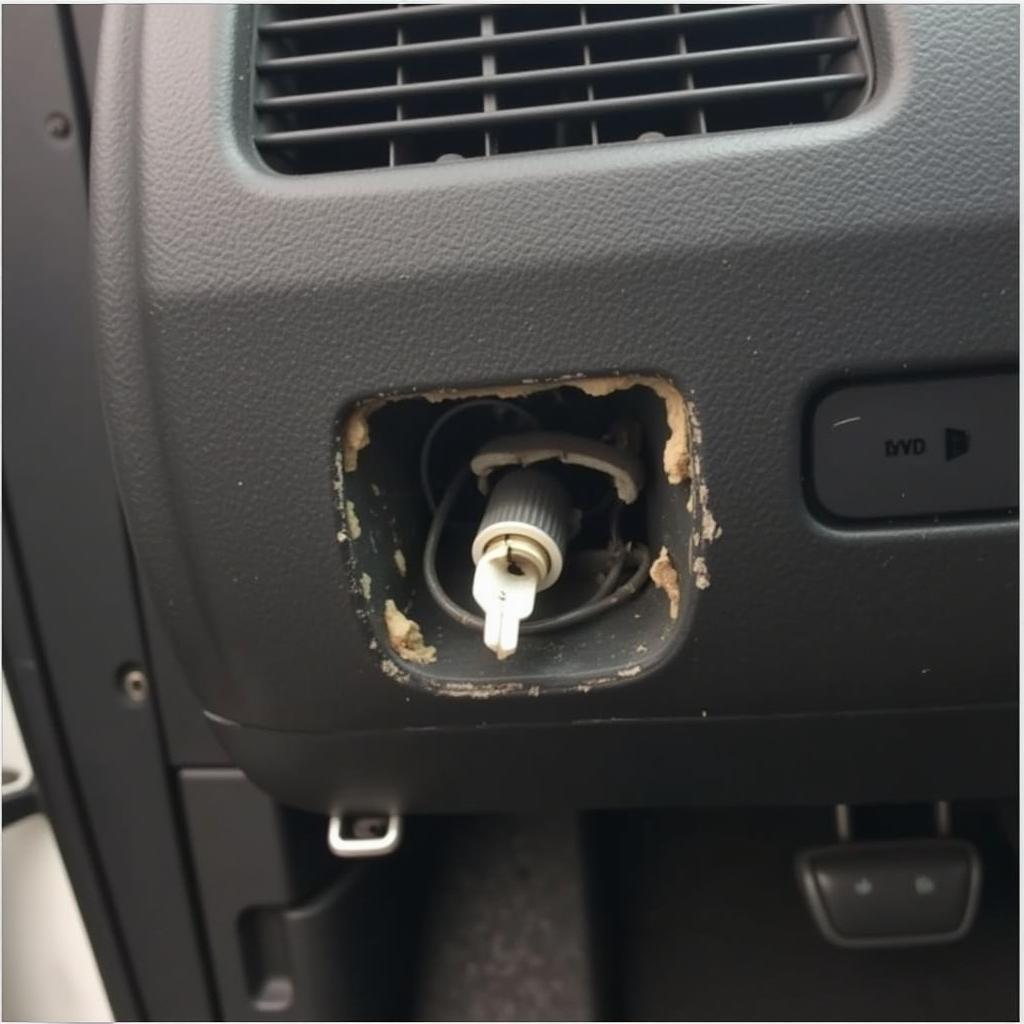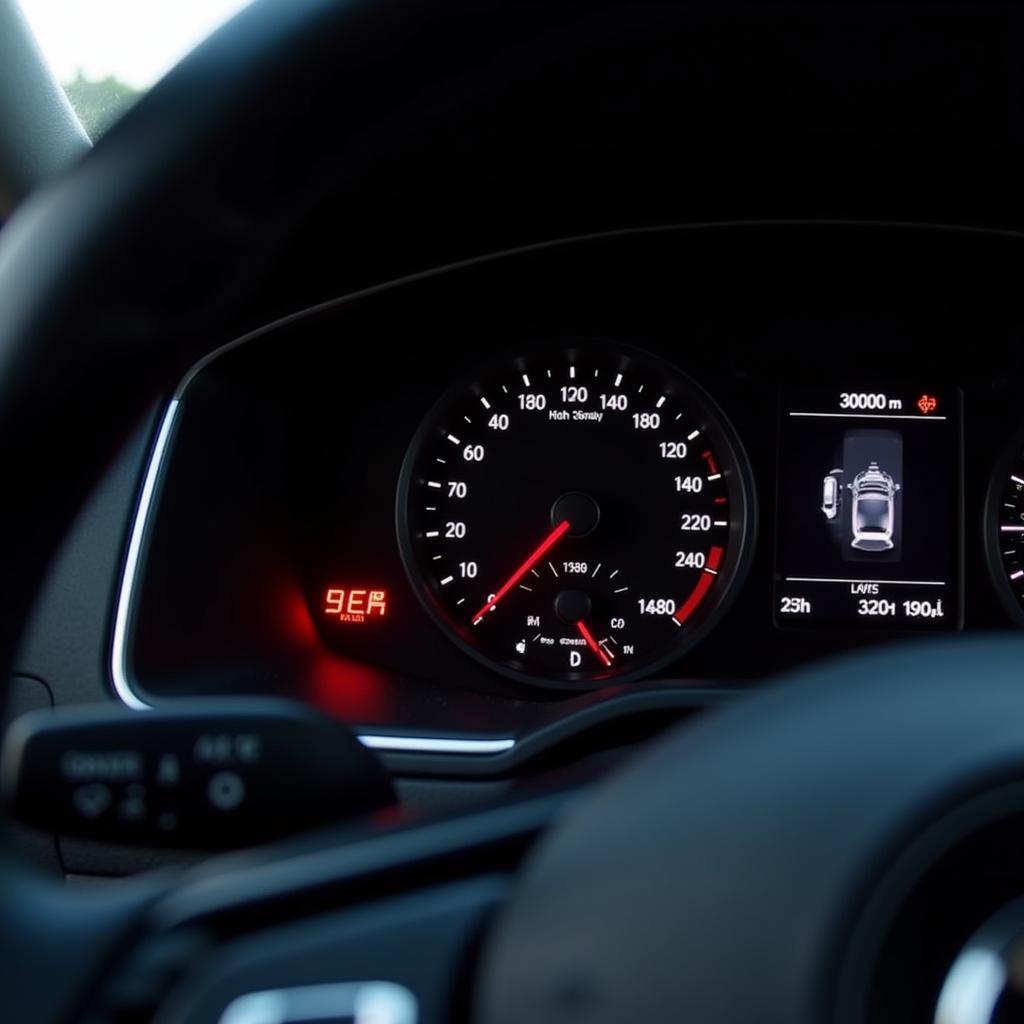The brake warning light on your Volkswagen Passat illuminating can be a nerve-wracking experience. This crucial warning light can indicate several issues ranging from minor to serious. This comprehensive guide will help you understand the common reasons why your Volkswagen Passat’s brake warning light is on and offer potential solutions.
Common Causes of a Volkswagen Passat Brake Warning Light
Let’s dive into the most frequent culprits behind that glowing brake warning light:
1. Worn Brake Pads
 Worn brake pads on a Volkswagen Passat
Worn brake pads on a Volkswagen Passat
The most common reason for the brake warning light to turn on is worn brake pads. Your Passat is designed to alert you when the brake pads wear down to a certain level, ensuring you have sufficient braking power.
2. Low Brake Fluid Level
 Low brake fluid level in a reservoir
Low brake fluid level in a reservoir
Brake fluid is the lifeblood of your car’s braking system. If the fluid level is low, it could be due to a leak or simply needing a top-up. A leak in the braking system is a serious safety concern and requires immediate attention.
3. Faulty Brake Light Switch
 Faulty brake light switch in a Volkswagen Passat
Faulty brake light switch in a Volkswagen Passat
The brake light switch is responsible for activating your brake lights when you press the brake pedal. A faulty switch can cause the brake warning light to come on, often alongside malfunctioning brake lights.
4. ABS Issue
Your Passat is equipped with an Anti-lock Braking System (ABS). If there’s a problem with the ABS system, such as a faulty wheel speed sensor, the brake warning light might illuminate.
5. Parking Brake Engaged
While this might seem obvious, accidentally leaving the parking brake partially engaged can trigger the brake warning light.
Diagnosing the Issue
“It’s crucial to diagnose the root cause of the brake warning light before attempting any repairs,” advises master mechanic John Miller, who has over 20 years of experience working on Volkswagen vehicles. “A thorough inspection can save you time and money in the long run.”
Here’s how to pinpoint the problem:
- Check the brake fluid level. This is the easiest and should be your first step. If it’s low, top it up and monitor the level closely for any further drop.
- Inspect your brake pads. Look for signs of excessive wear. If they appear thin, it’s time for a replacement.
- Listen for unusual noises. Grinding or screeching sounds when braking can indicate worn brake pads or other brake system issues.
- Check your parking brake. Ensure it is fully disengaged.
- Use a diagnostic scanner. If the issue persists, a diagnostic scanner can read the error codes stored in your car’s computer, providing more specific information about the problem.
Solutions and Repairs
Once you’ve identified the culprit, you can proceed with the appropriate solution:
- Worn Brake Pads: Replace the brake pads. It’s recommended to replace all four pads at the same time.
- Low Brake Fluid: Top up the brake fluid. If the level drops again quickly, there might be a leak that needs immediate attention from a mechanic.
- Faulty Brake Light Switch: Replace the brake light switch. It’s a relatively inexpensive part and a straightforward repair.
- ABS Issue: This requires professional diagnosis and repair. The mechanic will use a scanner to read the ABS error codes and pinpoint the faulty component.
- Parking Brake Engaged: Fully disengage the parking brake.
Ignoring the Warning Light: A Costly Mistake
Never ignore the brake warning light. Continuing to drive with a brake system issue can lead to brake failure, putting you and others at serious risk.
Preventive Measures
- Regular Maintenance: Adhering to your Volkswagen Passat’s recommended maintenance schedule, including brake inspections, can prevent many issues.
- Brake Fluid Flush: Have your brake fluid flushed and replaced every 2-3 years to ensure optimal braking performance.
- Driving Habits: Avoid aggressive braking and coasting downhill in neutral, as these habits can prematurely wear your brakes.
Conclusion
Addressing the brake warning light on your Volkswagen Passat promptly is crucial for your safety and the longevity of your vehicle. By understanding the potential causes and taking appropriate action, you can ensure your Passat continues to deliver a safe and enjoyable driving experience. If you’re unsure about diagnosing or fixing the issue yourself, seeking professional help from a qualified mechanic is always recommended.

